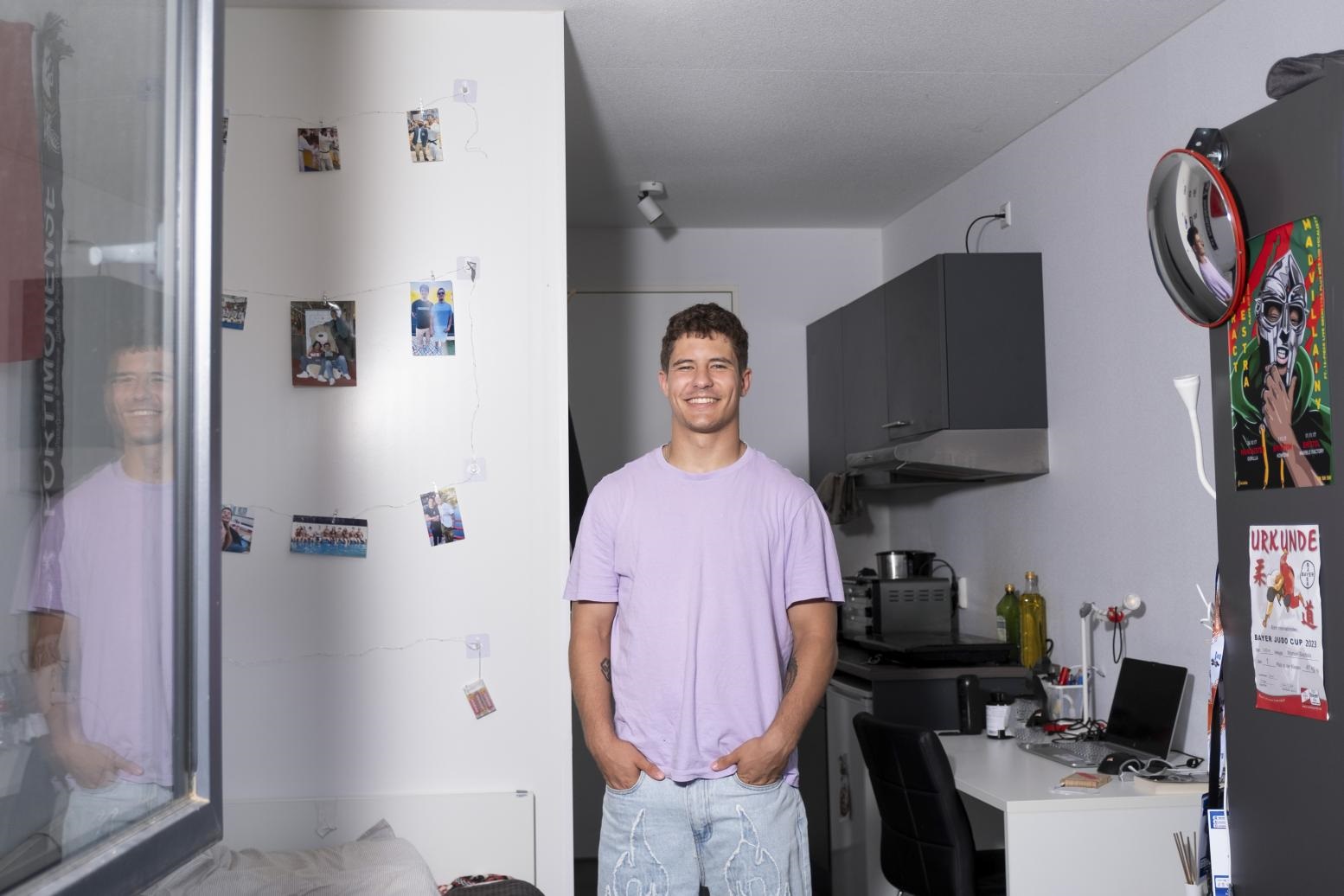The new challenge: finding a routine in online education
Finding a new routine in education is the biggest challenge we face, says Patrick Bijsmans, assistant professor in European Studies in the Faculty of Arts and Social Sciences (FASoS). Online education, no lectures or tutorials no contact with other students, no University Library… all these aspects are having a huge effect on daily routine.
‘I don’t have any tutorials in this block or the next,’ Bijsmans says. ‘That means at least I’ve got time to prepare everything properly. After all, can you teach online in the same way as you would in a lecture hall? How do you keep students engaged with a lecture when you can’t see them? How do you make the lectures interesting and interactive so that students continue to participate? What are online exams going to be like? These are essential questions for online education. As a Continuing Professional Development coordinator at FASoS, I’m having a lot of discussions with colleagues about this. We’re sharing experiences, joining webinars, sharing tips and tricks, and so on. It’s a constant learning process. This situation is also completely new to me as a lecturer. I’m an experienced lecturer, but teaching via a screen is different from being physically present in a room.’ As a blogger, Bijsmans has written a blog about his initial experiences: http://fasos-research.nl/fasos-teachingblog/2020/03/23/tales-from-my-home-office/
Technology
There are a lot of options to keep in touch with colleagues online, such as Skype and Zoom. ‘I’m currently using Skype a lot to communicate with colleagues and students, but it doesn’t work as well with larger groups,’ says Bijsmans. ‘Unfortunately, my experience with Zoom is limited.’ But technology is only an aid. The biggest challenge lies in the areas that call for a different approach online compared to the classroom. ‘And as lecturers, we need to find a new routine to keep distance education interesting and interactive, and make sure it’s sufficiently challenging for students.’


Patrick Bijsmans
This article is part of 'We're Open', a series of stories about the UM community’s many activities during the coronavirus pandemic.
Not everything is online
With no tutorial groups Bijsmans is now mainly supervising bachelors and masters students in writing papers and theses. He also has regular contact with his mentor students. ‘Students are running into new kinds of problems,’ he says. ‘For example, what are you supposed to do now you can’t access the University Library, but you still need a specific book? Publishers are now putting extra books online, but there are still some that aren’t available. It’s also a copyright issue, of course. As a university, you can’t simply copy the books, and the problem can’t be solved entirely by e-books either. Usually you can only share the book with other students a limited number of times. This could become a difficult problem if the situation goes on for a long time. But we’ll just have to come up with a solution.’
Motivation
Motivation is the next challenge, says Bijsmans. ‘How do you stay motivated as a student if you don’t have the everyday routine of tutorial groups and lectures? If you don’t have daily contact with fellow students about the course? How can you stay motivated if you have to stay in a room of twelve square meters all day long? I had contact with a student who had gone back to Rome and was skyping me from a big sunny garden where you could hear the birds singing. It immediately made me think of the students who are still in little rooms in the middle of the city. Not all students have the same opportunities to weather this crisis. We’re encouraging them to look after themselves and follow the guidelines strictly. And also to keep in touch with each other. Fortunately, a lot of students keep in touch via the Houseparty app, for example, because to build up a good routine, regular contact is important, and students do need to adopt a completely new routine.’
New challenges
All the usual everyday habits have gone out of the window. ‘When I have contact with students, I’m constantly stressing that they should try to organise their self-study carefully,’ says Bijsmans. ‘Make a plan! At FASoS we’ve posted a blog with ten tips on how to go about this. They include things like “be patient with the technology”. Now that everyone is working online, there are sometimes technical hitches. Don’t let it get you down. And be patient with your tutors. They’re also dealing with a completely new situation and they also have to adapt. It takes time as a tutor to get into the role online. And embrace the learning opportunity. Look, learn and experience the possibilities online. Don’t close yourself off from it.’ See the blog with tips at http://fasos-research.nl/fasos-teachingblog/2020/03/20/ten-tips-for-fasos-ba-students-as-we-move-to-online-education/
Bijsmans and his colleagues hope the blog will help students in developing a new routine and continuing to study actively. ‘But this will only be possible if we keep looking after ourselves and our health. So don’t stop reminding each other.
Also read
-
Moving orange spots on a yellow background are the first indication that something unusual is taking place in Maastricht's limestone quarry, Sint-Pietersberg. A closer look reveals that these are people clothed in orange vests. They are Maastricht Science Programme students and supervisors.
-
The area on the Sorbonnelaan in the Maastricht neighbourhood of Randwyck looked somewhat bare and remote about two years ago. This was mainly due to the modular and temporary appearance of the student houses that were quickly built there. Meanwhile, the area is increasingly taking on the character...
-
Two Law PhD candidates of the Maastricht Faculty received awards for their doctoral theses during the 21st International Congress of the International Association of the Penal Law in Paris.

